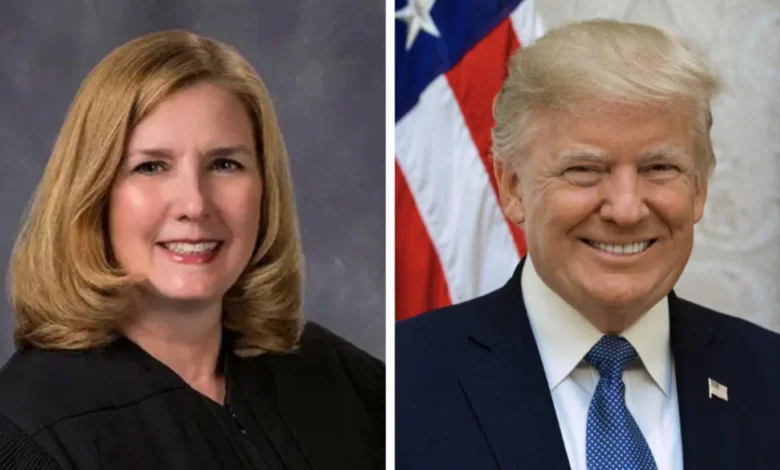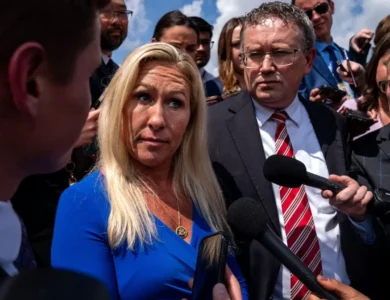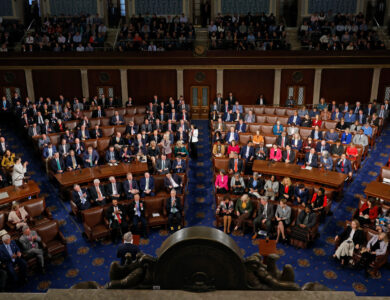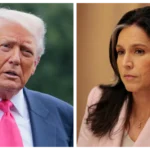Appeals Court Gives President Trump Massive Win

A federal appeals court on Wednesday lifted an injunction that had forced the U.S. State Department to keep making foreign aid payments, marking a win for President Donald Trump.
In a 2-1 ruling, a three-judge panel of the U.S. Court of Appeals for the District of Columbia Circuit found that a lower court was wrong to order the Trump administration to resume foreign assistance payments previously approved by Congress.
On January 20, the day of his second inauguration, Trump ordered a 90-day pause on all foreign aid. The executive order was followed by sweeping actions to scale back USAID, the primary U.S. foreign aid agency, including placing much of its staff on leave and considering bringing the once-independent agency under the State Department’s control, Reuters reported.
Two federally funded nonprofit organizations — the AIDS Vaccine Advocacy Coalition and the Journalism Development Network — sued, arguing that Trump’s funding freeze was unlawful. U.S. District Judge Amir Ali, appointed by former President Joe Biden, later ordered the administration to release nearly $2 billion in outstanding aid to global humanitarian partners, the outlet continued.
Writing for the two-judge majority, U.S. Circuit Judge Karen Henderson noted the nonprofit groups “lack a cause of action to press their claims” and as such, failed to satisfy what is legally necessary for an injunction.
Henderson wrote that only the U.S. Government Accountability Office — a federal watchdog — has the authority to challenge a president’s decision to withhold foreign aid funding.
Appointed to the appeals court by President George H.W. Bush, Henderson noted that the ruling did not address whether Trump’s foreign aid freeze violated the Constitution by encroaching on Congress’s spending power. Her opinion was joined by Circuit Judge Gregory Katsas, a Trump appointee.
In a dissent, Circuit Judge Florence Pan, appointed by Biden, argued that the decision allowed the Trump administration to ignore federal law and undermine the separation of powers enshrined in the Constitution.
“The court’s acquiescence in and facilitation of the Executive’s unlawful behavior derails the carefully crafted system of checked and balanced power that serves as the greatest security against tyranny – the accumulation of excessive authority in a single Branch,” Pan wrote, according to Reuters.
A spokesperson for the Office of Management and Budget, the budget office for the White House, said the appeals court ruling stops “radical left dark money groups” from “maliciously interfering with the president’s ability to spend responsibly and to administer foreign aid in a lawful manner in alignment with his America First policies.”
The administration managed another win in the nation’s highest court this week as well.
The Supreme Court reduced the scope of environmental studies for key infrastructure projects, potentially speeding up the permitting process for highways, airports, and pipelines.
The ruling is the latest loss for environmentalists at the court, which has recently thrown out measures aimed at protecting wetlands and preventing cross-state air pollution.
Trump has frequently criticized the government’s environmental assessment process as overly onerous.
Justice Brett Kavanaugh wrote the court’s ruling without any dissent. Ultimately, both liberal and conservative justices agreed with the final verdict.
Kavanaugh ruled that the environmental issues in the case—an 88-mile railway that would transport waxy crude oil from Utah’s Uinta Basin to existing rail networks—were “not close.”
“Courts should afford substantial deference and should not micromanage those agency choices so long as they fall within a broad zone of reasonableness,” Kavanaugh wrote.
“Simply stated, NEPA is a procedural cross-check, not a substantive roadblock,” he later added. “The goal of the law is to inform agency decision-making, not to paralyze it.”
The court’s three liberals, Justices Sonia Sotomayor, Elena Kagan, and Ketanji Brown Jackson, all agreed with the decision but used different rationales. Sotomayor, representing the three, argued that federal agencies should limit their environmental examinations to their respective areas of competence.





